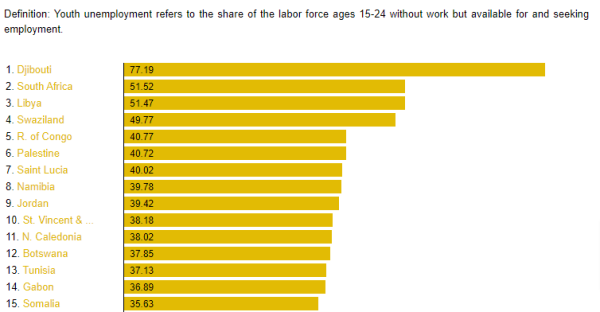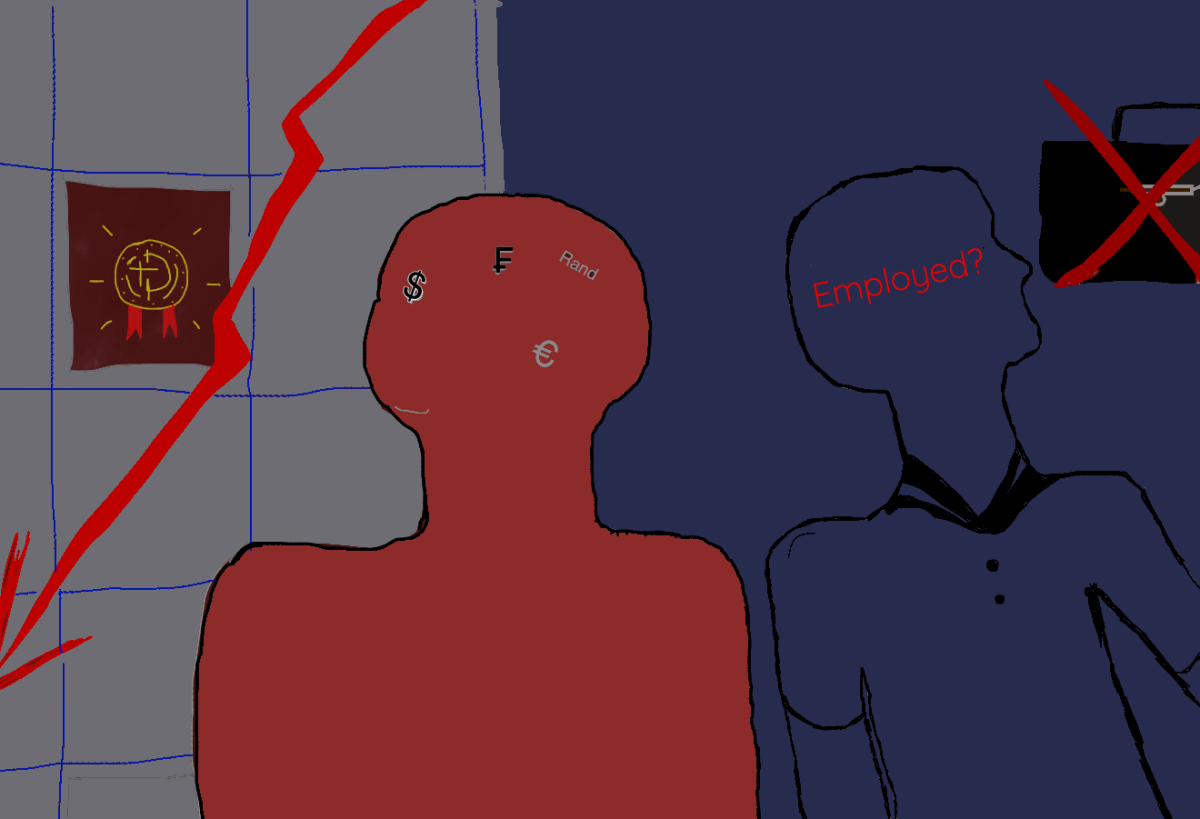Youth unemployment is a pressing global issue that transcends geographical boundaries and has a significant economic impact. The economic downturn and a lack of quality education worsen this crisis. In many places, young people face many challenges in finding stable employment.
According to The Global Economy, Djibouti has a relatively low GDP at $3.484 billion and a limited demand in specialized sectors, so nearly 80% of people aged 15 to 24 have no work available. In developing countries, education barriers play a significant role in youth unemployment. Limited access to educational resources, inadequate infrastructure, and substantial socio-economic disparities create obstacles for youth to acquire the right skills for employment. This repeats in a cycle, hindering the overall development of these nations.
The country with the highest youth unemployment rate in Europe, Spain, has 29%, reveals Euro News. The COVID-19 pandemic has also compounded matters in many countries due to job losses and educational disruptions. Industries such as hospitality and retail, which hire young employees, have been hit the hardest by closures.
Technological advancements have also created a demand for new skills, making traditional jobs obsolete. This shift is challenging for the youth as they lack the skills and experiences required for these jobs. Therefore, the youth requires higher education to get the skills necessary for new technological advancements.
Education systems take years to change and adapt to new working environments, so students and graduates will not meet the skills and qualifications employers seek. Not meeting the skills and qualifications will then lead to a mismatch between the supply of skills and the demand in the job market.
According to The World Bank, females and males with a basic education in South Africa face a 36.23% and 31.79% unemployment rate, respectively. On average, both females and males with advanced education in South Africa face a 16.88% unemployment rate. This data shows how a country as developed as South Africa can face these problems; therefore, these problems loom large in other underdeveloped countries.
For many seniors and juniors determining their potential majors, job prospects are an essential aspect to consider. There are many majors out there in many different fields, but there are a few majors which have the highest unemployment rates. Number three is sociology, number two is philosophy, and number one is fine arts, with a 9%, 9.1%, and 12.1% unemployment rate, respectively.
In conclusion, youth unemployment is a problem that needs to be addressed worldwide. The causes vary and include technological changes, economic downturns, and shortcomings in the education systems. Such issues negatively impact people’s lives, societies, and businesses.


















































































